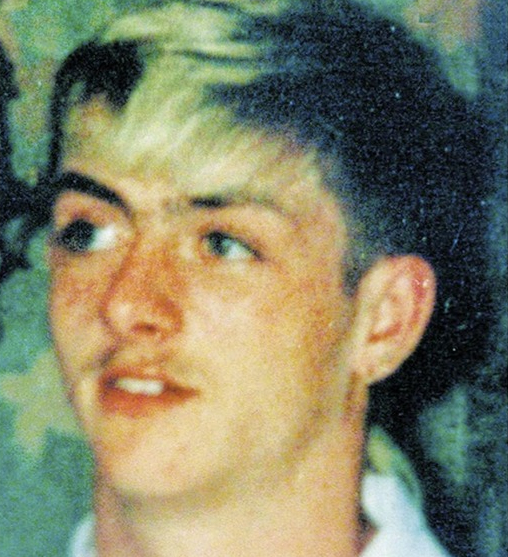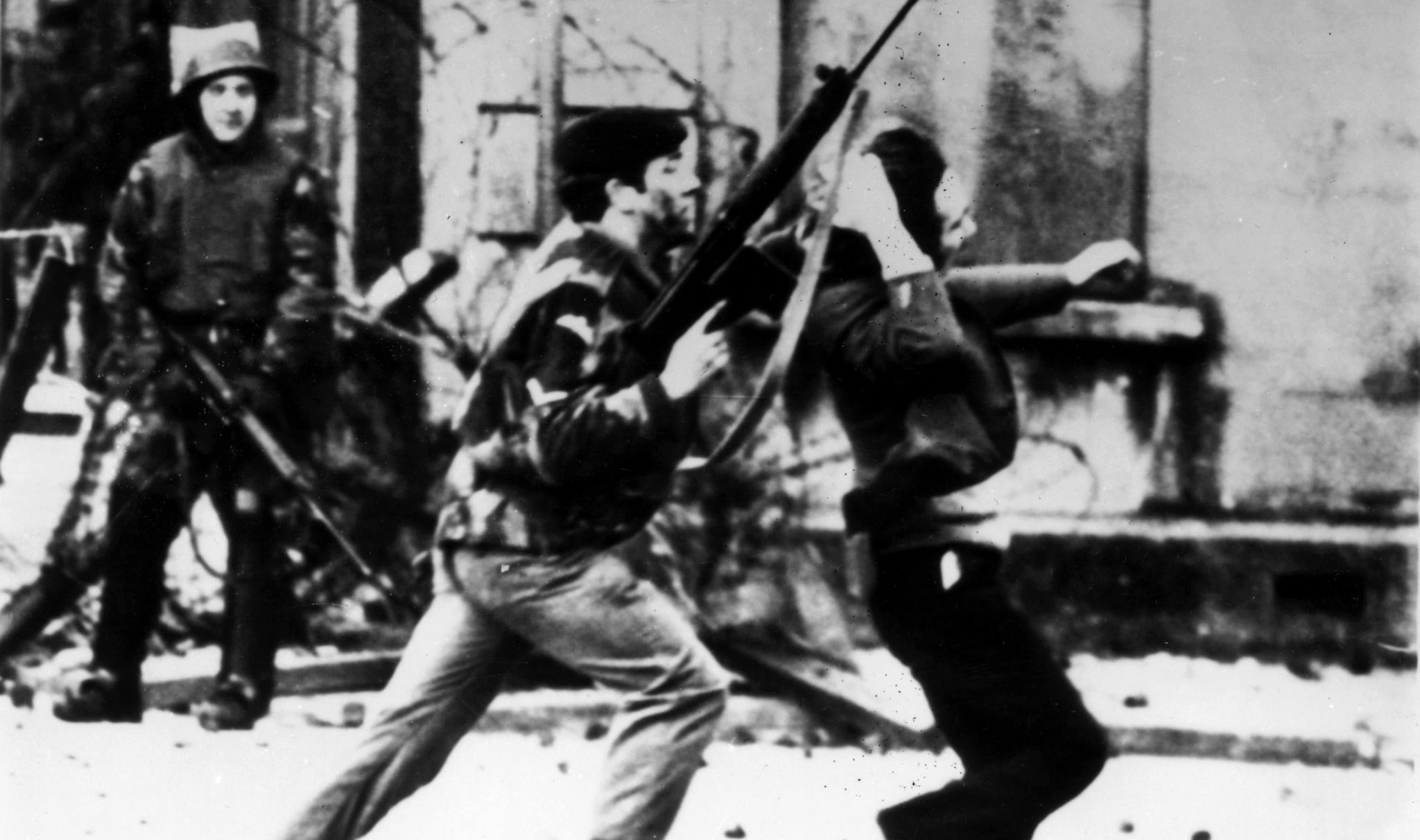Britain’s defence secretary Ben Wallace is leading attempts by the Conservative government to force a path to amnesty for military veterans of the Troubles.
His plan would deny scores of bereaved families the right to justice through the courts.
It goes against the wishes of every political party and all victims’ groups in Northern Ireland.
Having tracked Wallace’s career from his time in the military to the top of British politics, it’s sadly not surprising he is taking this stance.
Thirty years ago, Wallace was a young army officer on a tour of duty in Belfast with the Scots Guards infantry regiment when something terrible happened.
Two fellow soldiers shot Peter McBride, an unarmed teenager, in the back.
McBride was killed just moments after he had been detained. If you’ve watched the recent BBC and Channel 4 documentaries about British commandos apparently executing detainees in Afghanistan, then this may sound eerily familiar.
The Belfast case happened on 4 September 1992 when Scots Guards stopped and searched McBride not far from his home.
The 18-year-old was carrying a white plastic bag whose contents were examined and given back to him. McBride, a father of two, sought to return home with no further delay.
Instead, he was pursued by the soldiers, shot in the back and seriously wounded. He collapsed across a car and slid to the ground.
Then he was shot again in the back and died.

Scots Guardsmen James Fisher and Mark Wright were taken to a nearby army barracks, where the police were denied access to interview them for at least 10 hours.
The next day the soldiers were charged with murder and held on remand. In 1995, they were convicted and sentenced to life imprisonment.
For a conviction in these circumstances, the court must be certain “beyond a reasonable doubt” of an intent to murder, without justification such as self-defence.
Lord Chief Justice Basil Kelly said the soldiers’ evidence was “untruthful”, dismissing claims they believed McBride was holding a coffee jar bomb.
In 1996, leave to appeal to the House of Lords was denied. At no point, the courts decided, did McBride pose any risk to anyone.
Defending murder
A high-profile campaign to free the two soldiers ensued – and it worked. The guilty men were released from prison just three and half years into their life sentences, despite failing to overturn their murder convictions.
Incredibly, they then re-joined their regiment on active service after an Army Board deemed there were “exceptional circumstances”.
This caused fury in Belfast as, it was pointed out, Major Charles Ingram had been booted out of the army for cheating on Who Wants To Be A Millionaire. Was the life of a Belfast teenager less important?
In the five years after Fisher and Wright’s conviction, 1,400 soldiers were dismissed for taking drugs. The McBride family and supporters felt Tony Blair’s Labour government viewed the smoking of a joint as a more heinous crime than shooting an unarmed teenager in the back.
For Wallace, it was not a crime at all. When he became a Conservative MP in 2005, he told the House of Commons the two soldiers had “genuinely believed [McBride] was about to carry out an act of terrorism”.
Wallace further claimed that the soldiers had “made, in my view, an error, but the courts felt that they had committed murder”.
The dead man’s family immediately wrote to Wallace through the Pat Finucane Centre, for which I work.
The letter pointed out that his understanding of the prosecution and conviction of Guardsmen Wright and Fisher was inaccurate and deeply hurtful.
He chose not to respond.
Rising through the ranks
When Wallace became a junior minister at the Northern Ireland Office in 2015, we decided to write to his boss, the Secretary of State Theresa Villiers.
We said she had a duty to ensure that her ministers did not seek to justify the murder of unarmed teenagers, urging her to clarify the position as a matter of urgency.
She was reminded that the Irish Parliament had unanimously condemned the Army Board’s decision to reinstate the two soldiers into the Scots Guards.
Villiers’ reply merely compounded injury with insult, as she pointedly referred to her pride in the role played by “the Armed Forces in defending the rule of law”.
We reacted, informing Villiers it would be “difficult to conceive of a more insensitive statement to make in response to a mother whose son was murdered by the British Army”.
Does Wallace really think shooting an unarmed teenager in the back is ‘taking the fight to the enemy’?
In 2020, Wallace (by now defence secretary) gave an interview to an army magazine. In it, he described Wright and Fisher’s commanding officer as “a disrupter” who “took the fight to the enemy in Belfast”.
That officer was Lieutenant Colonel Tim Spicer, a notorious mercenary who played a prominent part in defending the two soldiers – even after they had been convicted of murder.
During Spicer’s command of the Scots Guards in Belfast, the only person they killed was McBride.
Does Wallace really think shooting an unarmed teenager in the back is “taking the fight to the enemy”?
To date, there is no confirmation that Wallace believes Fisher and Wright broke the law.
Yesterday, he failed to answer questions from Declassified as to whether he knew the two men personally, or had ever patrolled with them in Northern Ireland.
This matters because Wallace is a key player behind a bill which would prevent any British soldier ever being held accountable under the rule of law for their conduct in the Troubles.
Irrespective of the weight of evidence against them, they would be shielded from inquests, inquiries, judicial reviews, civil claims or criminal courts.
On the scales of justice, then, there are the rights of the citizens of Northern Ireland to vindicate their right to life through the courts and the European Convention of Human Rights.
On the other scale there is a minister of the crown who refuses to recognise a court’s ruling of murder. The scales do not seem evenly balanced.
A Ministry of Defence spokesperson said: “Our sympathies remain with the families of all those killed during the Troubles.
“The Government’s Legacy Bill will address the legacy of the Troubles which focuses on reconciliation, delivers for victims and ends the cycle of investigations.”



